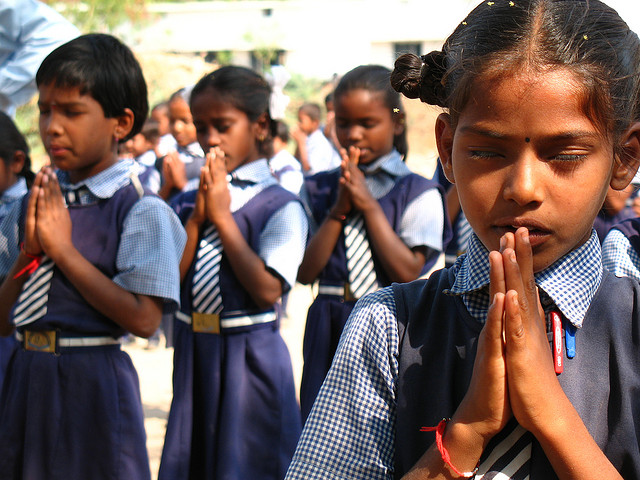
Bangalore: Asia is considered to be the future power block of the world and countries like India and China the global leaders. India has recently overtaken Japan to be the third largest economy of the world after U.S and China, as per The Economic Outlook Report of the Organization for Economic Cooperation and Development (OECD) based in Paris but there are still a wide host of problems which it needs to cater to before it can be called an economic power in its true sense.
India which is looking forward to becoming an economic power is still lagging behind in providing quality education to its children. According to a study made in 2010-2011 by The United Nations Educational, Scientific and Cultural Organization there are close to 1.67 million children in India who are out of school and this places it fourth from the bottom on the list of countries with maximum number of children out of school as reported by Aesha Datta of BusinessLine. It is placed after Nigeria, Pakistan and Ethiopia.
Nigeria has 10.54 million children out of school; Pakistan with 5.43 million and with the recent developments made by the Indian government in the educational sectors, Ethiopia has overtaken India with 1.7 million children out of school. India has made significant progress in the field of education to children. In the year 2000 India had close to 20 million children out of school but in the 2006 survey it was found that the number came down to 2.3 million and the figures are really inspiring as it defines the success story that the Indian government had over the years.
The study conducted by UNESCO also brought out the fact that India receives close to 10 percent of the aid to basic education in the world, which is the largest share compared to any other country.
The government of India has come up with a new dimensional strategy to cater to the rural or Grameen children with the Sarva Shiksha Abhiyaan. This is a programme by the Government of India with the aim of making elementary education universal “in a time bound manner”, as mandated by the 86th amendment to the Constitution of India making free education to children aged 6–14 a fundamental right. This programme was led by Atal Bihari Vajpayee. There has been improvements made in the field of education by India but there is still a wide road ahead in becoming an economic power with the best educational reforms.
Source: Silicon India








